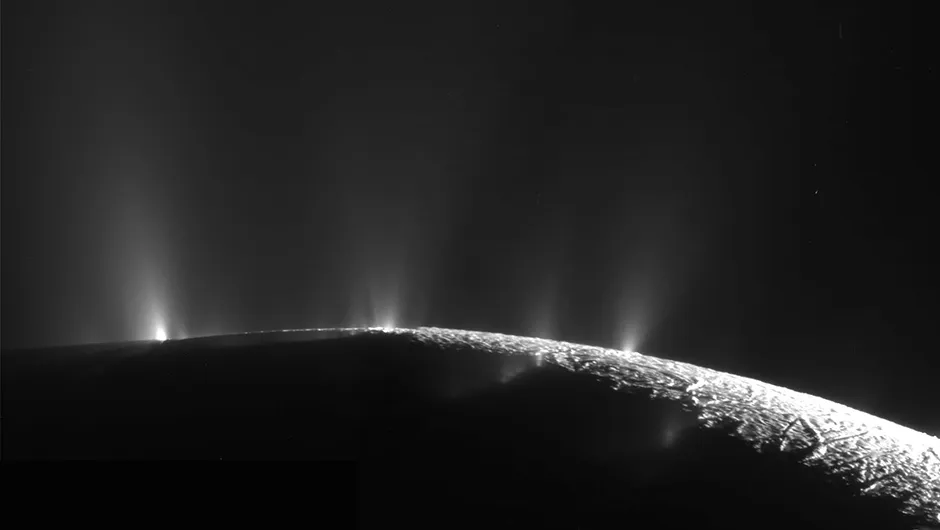Complex organic molecules have been discovered on Saturn’s moon Enceladus.
The discovery makes Enceladus the only known body apart from Earth to satisfy the requirements for life as we know it.
The moon hosts a global ocean beneath an icy crust, and data from the Cassini mission has revealed that large carbon-rich organic molecules are ejected from cracks in its surface.
It is thought chemical reactions between the moon’s rocky core and warm water from its ocean could be linked to the presence of these complex molecules.
“We are, yet again, blown away by Enceladus. Previously we’d only identified the simplest organic molecules containing a few carbon atoms, but even that was very intriguing,” says Dr. Christopher Glein of the Southwest Research Institute and co-author of a paper on the discovery.
“Now we’ve found organic molecules with masses above 200 atomic mass units. That’s over ten times heavier than methane.”

Enceladus's subsurface ocean bursts through the moon's icy crust in the form of water vapour plumes.
Cassini was able to collect and analyse samples of the plumes during its flyby of Enceladus on 28 October 2015.
The spacecraft’s instruments detected molecular hydrogen in the plume, which is thought to form through interactions between water and rocks in hydrothermal environments.
“Hydrogen provides a source of chemical energy supporting microbes that live in the Earth’s oceans near hydrothermal vents,” says SwRI’s Dr. Hunter Waite, a coauthor of the new paper.
“Once you have identified a potential food source for microbes, the next question to ask is ‘what is the nature of the complex organics in the ocean?’
This paper represents the first step in that understanding - complexity in the organic chemistry beyond our expectations!”
